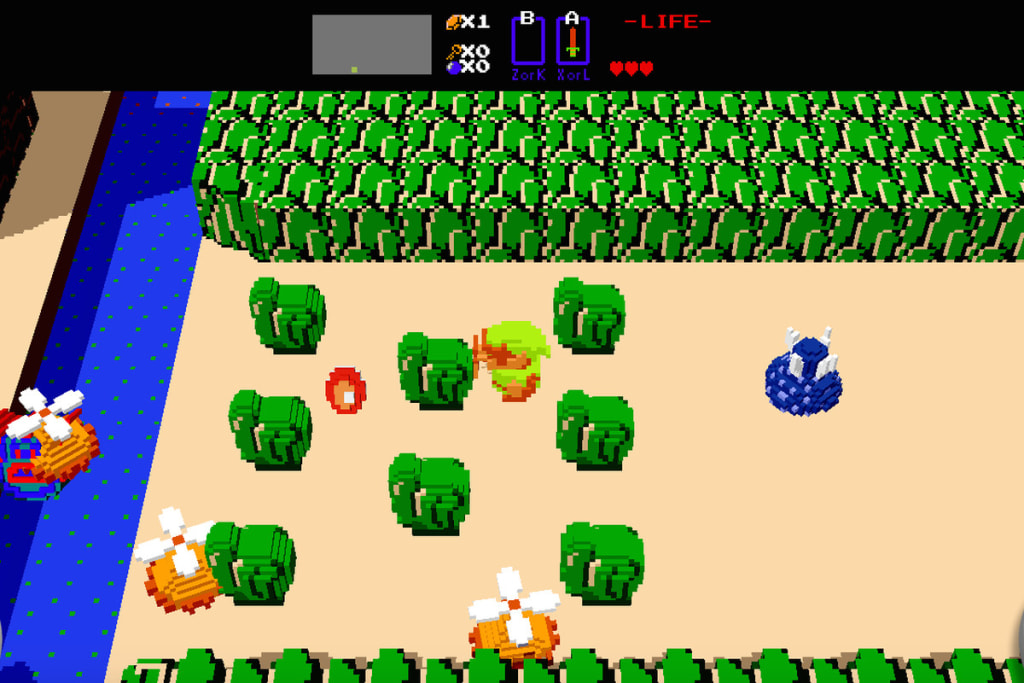'The Playstation Dreamworld' by Alfie Bown
Jacques Lacan vs. Super Mario

In his last book, The Playstation Dreamworld (Polity, 2017), Alfie Bown is not exclusively addressing video game players—whether full-time or simply occasional players—but everyone. He understands that video games can be the perfect tool to comprehend the digital media scenario in which we live. So, in the same way that American cinema from the 40s, 50s and 60s left a footprint in several generations' lives, regardless of whether one watched the movies or not, influencing their clothes, haircuts, the music that they listened to, and the way they walked or smoked, Bown's idea is that video games might be doing the same with this generation, regardless of whether we play video games or not. The digital revolution has arrived and former cultural backbones such as theatre, novel, radio, cinema, and television have been swept away or assimilated by the internet. Video games, however, which were also born before the internet, seem to be a means of expression, cultural asset, leisure activity or whatever you want to call them, which adapts and morphs with technology. Advances in computers allowed games to evolve and designs to become more real. The possibilities of games multiplied, as well as the available offer. The consoles, before the mobile phones, became small and portable and gave the option to play anywhere. The development and implementation of the internet make it possible to play online with people from all over the world, and virtual reality (VR) systems seem to be the last frontier between fiction and reality. In addition to this, with the shift of generations of players, video games have ceased to be a market for children, teenagers, or alternative cultures to occupy an important part of the adult leisure market.
Video games appear as a step ahead, as a cultural touchstone if we compare them with books or movies, because they incorporate one of the key factors to understand the present moment: participation. Constant participation is one of the features that best defines the ethos of today's society. Conceivably, in the past, time for leisure or rest was associated with just that—to rest, to forget work, either socialising with friends, traveling, going for a movie, watching television, or reading a book. But now the pressure is too great and nobody can afford to remain disconnected for a long time and therefore, at the same time we do any of these things, we see what is happening on Twitter and Facebook, check our email, post on Instagram, send three text messages, fifty WhatsApp, and so on and so forth. The inability to concentrate has nothing to do with the quality of the books or films we choose, but with ourselves and with our permanent need to always be somewhere else doing something different than what we are actually doing.
The possibility offered by video games has a double advantage: on one hand, it demands a greater degree of concentration since we need not only to look, but also to use our hands to play, and at the same time, it requires less mental attention than a book or a movie, and the games can be split indefinitely, adjusting to our already fractioned schedules. The second advantage is that the fact of being protagonists makes us think that we decide or determine the final result that perfectly matches with our inflated egos and, at the same time, it guarantees us a greater immersion in the action. They are more efficient making us forget the rest of temptations waiting for us.
This differential fact makes the essence of video games different and therefore the analysis that we can make of them must be different, as well. During this process of differentiation is when the author found the connection that structures the book: video games-dreams-psychoanalysis. It is evident, the connection between video games and psychoanalysis, through unsatisfied desires that are time and again fulfilled, and so immediately forgotten and replaced by new desires. Each time, both dissatisfaction and culmination are happening at a higher speed. Games offer also the possibility of being someone else; someone better, or different, than us; someone who succeeds or who is not judged when they fail. Through the analytic question, he arrived at the world of dreams and its analysis. Dreams, like games, are experienced actively, and the gamer suffers, thrives, explores, unaware of what is going to happen, within an environment that he does not control. If the involvement in the game is big enough, both experiences may be pretty similar, including the return to the real world, afterward. The difference is that dreams are exclusively our own while, in games, we are inhabiting someone else's dream. Walter Benjamin and his ideas of daydreaming while wandering around the city (curiously under the Paris arcades) are a constant source of inspiration for Bown, since his concept of dreamworld is not limited to the moment of playing, but it extends to the whole framework of screens and computers that surround us. This dreamworld has nothing to do with a oneiric fluid-like world. On the contrary, it can be deeply ideological and full of political content. Bown's concept of consciousness is closer to Jean-Luc Nancy than to Freud, since his consciousness is a consciousness-in-the-world—something that exists collectively rather than in a personal or individual Freudian mode.
The contention of the book is that so many hours playing video games or staring at screens are usually "dismissed as apolitical," as secondary or expendable. Nonetheless, this is a relevant characteristic of modern life and hence to be carefully considered. No human activity is apolitical and video games' political potential is going to be canalised and utilised by someone. In the same way that they can be used as instruments of control and collective stunning, this phenomenon can be reversed and turn this "dreamworld" into a space for subversion, alien to the control of governments and corporations. Although aware of the control that current ideological powers exercise over this space, Bown distinguishes some glimmer of hope to turn around the pre-established games' ideology and use them, instead, as tools for change. For this, it is required to swim against the current, to be rebellious, question everything, and develop a critical spirit so gamers are able to play the games not for the purpose with which they were designed, but in some sense, seeking for a Derridean deconstruction of the original ontology of the game.
Although the approach is powerful, in my view, Bown does not go far enough and does not finish materialising the format of this possible subversion. In my opinion, the subversion offered by video games will be the same as those offered by other means of communication or entertainment. Subversion, controversial positions, and "left merchandising" have become part of the system governed by corporations and states. It can never be anti-system if it is inside the system itself and it is tolerated by it. Capitalist democracies allow this game of freedoms, even taken to the extreme, knowing, at all times, that consequences are minimal and possibilities of change almost nil. In our hyperconnected society, we stay less connected than ever before. Political parties are merely puppets in the hands of large corporations, global banks, and rating agencies. The vagaries of the stock market, banks, the oil industry, real estate, pharmaceuticals, or the arms industry are listened to obediently by governments, while citizen protests are heard as healthy democratic demonstrations without visible effects.
The author manages to thread, in the same strand, video games, dreams, Lacanian enjoyment, desire, and capitalism. The analysis of today's society is very enlightening and even for an ignoramus in video games like myself, the examples used always reinforce the arguments and give depth and breadth to the work. Perhaps the weakest part is the political connection, although, to be fair, I must point out that the book is partly speculative about a future in the short or medium term. By exploring the ideas of Slavoj Zizek and Mark Fisher, who stated that we must assume that there is no alternative to capitalism and this fact should not make us pessimistic, but on the contrary, we have to grasp that opportunity. This reminds me of some pseudo-gurus that try to sell Eastern Philosophy as the remedy for everything, using always as an example the word "crisis," which, in its original Chinese definition, according to them, means both danger and opportunity. For Fisher and Zizek, what is truly dangerous right now is a blind belief in some kind of utopian alternative, which ends capitalism for good, and that is so far away from being reached that it makes any movement ineffective, keeping us inactive. The late Mark Fisher used to mention that small ruptures in the system could be the beginning of big cracks on the surface, highlighting the necessity of focusing on modest realistic objectives more than sonorous ideals. Bown comes aboard this group with his theory of video games as a platform susceptible to generate change, to reverse power ideologies, and to find an environment suitable for revolution, and that also fits perfectly with the times we live in and probably with the future to come.
Game Over.






Comments
There are no comments for this story
Be the first to respond and start the conversation.